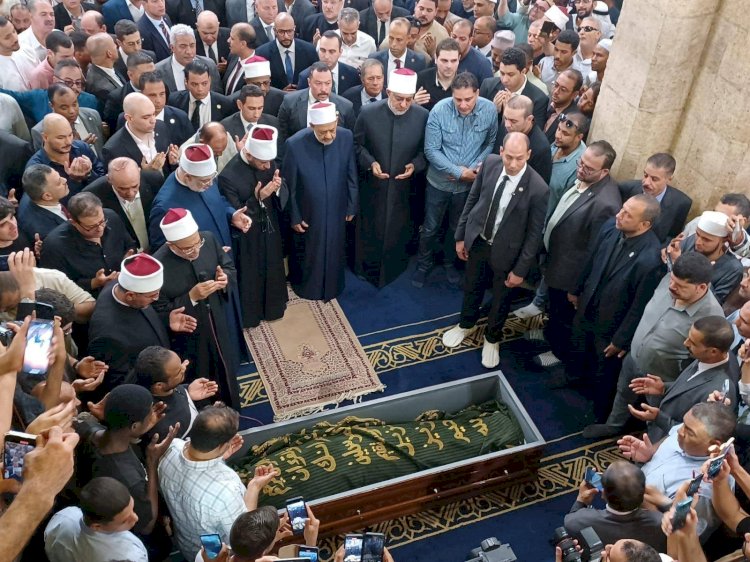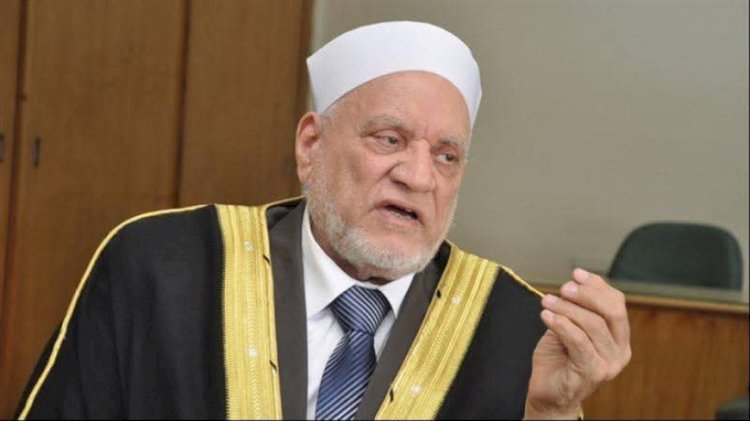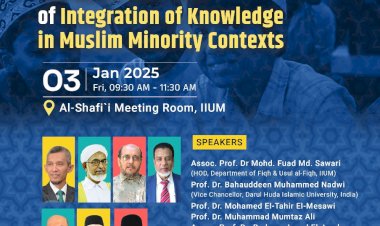Dr. Ahmad Omar Hāshim: A Life Devoted to Knowledge and the Sunnah
In the early hours of Tuesday, 7 October 2025, the Muslim world mourned the loss of one of its most respected scholars, Dr. Ahmad Omar Hāshim, a leading figure in the modern history of al-Azhar and a foremost authority in the field of Hadith studies. He passed away at the age of 84 after a prolonged illness, leaving behind a rich legacy of scholarship, devotion, and lifelong service to Islam.
Born on 6 February 1941, Dr. Ahmad Omar Hāshim graduated from the Faculty of Uṣūl al-Dīn at al-Azhar University in 1961. He earned his master’s degree in Hadith Studies in 1969 and his PhD in the same discipline soon after. By 1983, he had become a full professor of Hadith, later serving as Dean of the Faculty of Uṣūl al-Dīn in Zagazig in 1987, and eventually as President of al-Azhar University in 1995 — one of the highest honours in Islamic academia.
Throughout his life, Dr. Hāshim embodied the spirit of al-Azhar — a scholar of deep humility, eloquence, and sincerity. He was known for his clarity of expression, powerful oratory, and commitment to the service of the Sunnah of the Prophet Muhammad ﷺ. His Friday sermons, television lectures, and university classes inspired generations of students and scholars across the Muslim world.
In recognition of his contributions, he held numerous key positions:
-
Member of the Council of Senior Scholars (Hay’at Kibār al-ʿUlamāʾ) at al-Azhar
-
Member of the Islamic Research Academy
-
Chairman of the Religious Programmes Committee on Egyptian Television
-
Member of the Egyptian Parliament and Shura Council
-
Chair of the Hadith Department at al-Azhar
His influence extended far beyond Egypt. He represented al-Azhar in international conferences in Pakistan, Algeria, Morocco, Malaysia, Kuwait, and Germany, often addressing the preservation of the Sunnah, Islamic unity, and contemporary challenges faced by Muslim societies.
Dr. Hāshim’s scholarly output was vast. He authored and edited over a hundred works covering Hadith, Fiqh, ethics, education, and Islamic thought. Among his most notable titles are:
-
Al-Sunnah al-Nabawiyyah wa ʿUlūmuhā (The Prophetic Sunnah and Its Sciences)
-
Qawāʿid Uṣūl al-Ḥadīth (Principles of Hadith Methodology)
-
Min Hady al-Sunnah al-Nabawiyyah fī al-ʿIbādāt (Guidance from the Prophetic Sunnah in Worship)
-
Fi Ẓilāl al-Hady al-Nabawī (In the Light of the Prophetic Guidance)
-
Al-Akhlāq fī Ḍawʾ al-Qurʾān wa al-Sunnah (Morality in the Light of the Qur’an and Sunnah)
-
Taysīr Muṣṭalaḥ al-Ḥadīth (Simplified Hadith Terminology)
-
Fayḍ al-Bārī fī Sharḥ Ṣaḥīḥ al-Bukhārī (15 volumes)
-
Sharḥ Ṣaḥīḥ Muslim (5 volumes)
-
Al-Manhaj al-Nabawī fī Taʿlīm al-Muslimīn (The Prophetic Method in Educating Muslims)
He also contributed to the critical edition of classical works, including Musnad Aḥmad ibn Ḥanbal, al-Kifāyah by al-Khaṭīb al-Baghdādī, and Tadrīb al-Rāwī by al-Suyūṭī, among others — continuing the scholarly tradition of verification and transmission.
Beyond his academic brilliance, Dr. Hāshim was deeply involved in public guidance. He spoke on issues of moral reform, youth, women in Islam, interfaith harmony, and the role of the Muslim Ummah in facing global challenges. His writings on the moderation and balance (wasatiyyah) of Islam became a cornerstone in modern daʿwah literature.
In his later years, he was revered as one of the last senior scholars linking the golden generation of al-Azhar’s Hadith tradition to the present day. Despite illness, he continued to teach, write, and advise students until his final days.

Upon his passing, al-Azhar al-Sharīf, under the leadership of Grand Imam Dr. Ahmad al-Ṭayyib, issued a heartfelt statement mourning “a great scholar and one of the most eloquent and sincere callers to Allah.” The statement praised him as “one of the foremost scholars of Hadith in this age, blessed with clear expression, sincerity in daʿwah, and dedication to serving the Sunnah.”
Egyptian President Abdel Fattah al-Sisi also expressed his condolences, describing him as “a great scholar and preacher whose abundant knowledge and dedication to faith and learning will remain deeply rooted across generations.”
Thousands attended the funeral prayer at al-Azhar Mosque, led by the Grand Imam himself, in a moving farewell that filled the mosque’s courtyards with students, scholars, and admirers from Egypt and beyond.
“May Allah grant him a home better than his home, family better than his family, and make Paradise his eternal abode. Indeed, the scholars are the inheritors of the Prophets.”
Disclaimer
The views expressed in this article are the author’s own and do not necessarily mirror Islamonweb’s editorial stance.
























Leave A Comment